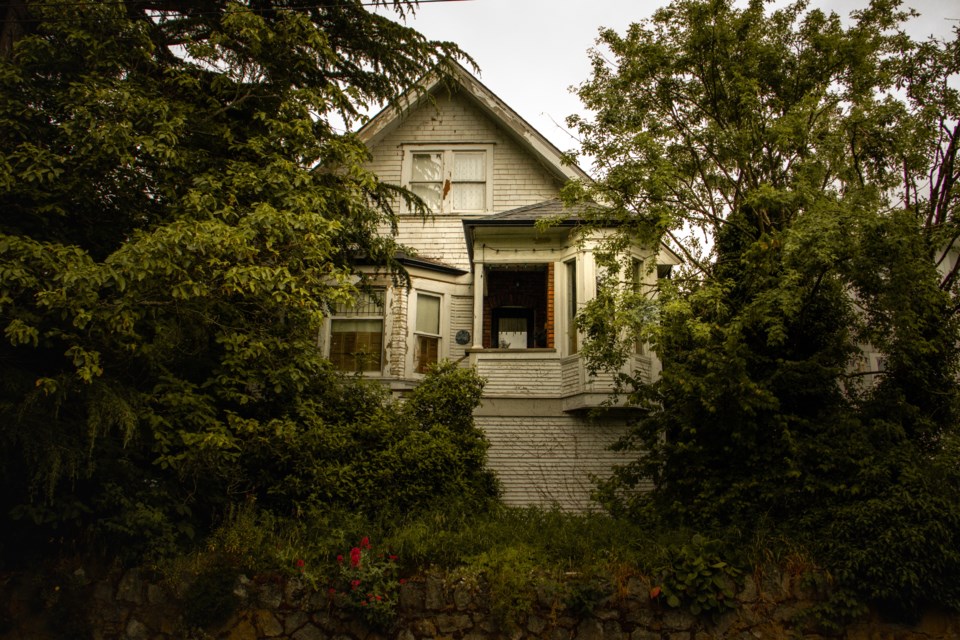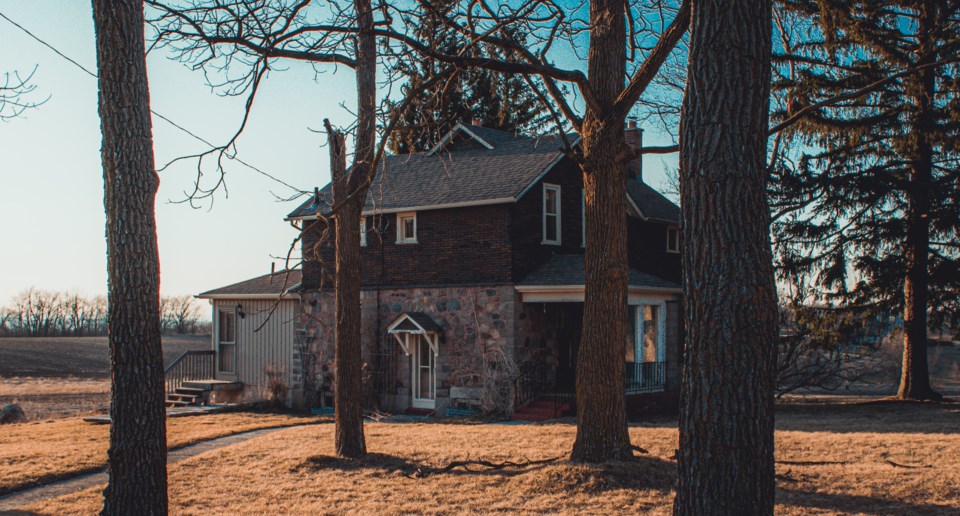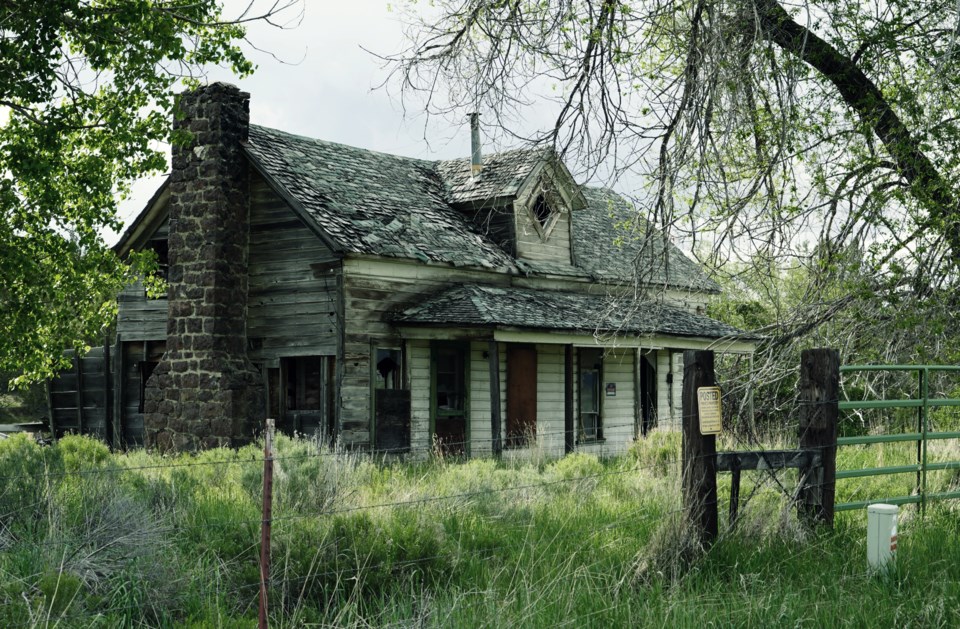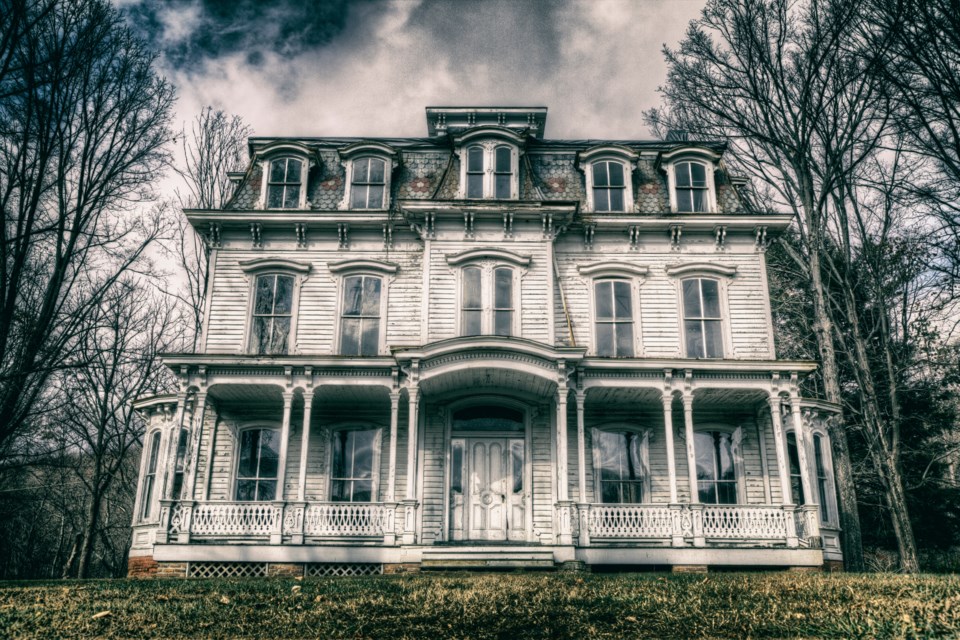With today being October 31, an eerie atmosphere settles in and a haunting question arises in the real estate world: do home sellers have a duty to reveal the paranormal, sinister, or unsettling secrets hidden within the walls of their homes?
It's true, while a property may seem flawless from the outside, lurking within its walls could be tales of involvement in illegal activities or even supposed paranormal activities. Such a property is branded with the term "stigmatized," a label that can cast a shadow over its marketability, potentially diminishing its value.
So, what is a stigmatized property? A stigma can have many meanings, but we’re talking about an intangible, non-physical attribute that could elicit an emotional or psychological response from a potential buyer. In this situation, the Canadian Real Estate Association (CREA) says potential stigmas could include whether a property was the scene of a crime, if it was owned by a notorious individual, if it was used as a former grow-op, or a suspected haunting. CREA also mentioned that it’s important to note stigmas have nothing to do with the physical condition or features of a property.
For some prospective buyers, a property's stigma may be of little concern, a mere ghost of the past. But for others, death, fear of hauntings, or sensitivities such as the house address number can all serve as an ominous red flag waving in the breeze and deter them from buying.

So, what information must real estate agents and sellers reveal if they possess knowledge about a house that could classify it as a stigmatized property?
Toronto-based veteran realtor and expert on stigmatized properties Barry Lebow says while it might not be ideal from an ethical point of view, the law is clear.
“Though it is not necessarily a law, it is good business practice for the seller and the realtor to disclose what they know,” says Lebow. “Whether it is, say, a murder or otherwise, it is better to be forthcoming and get it out there rather than have a buyer finding out after the fact."
However, the disclosure of such unsettling truths varies depending on your location. Sellers aren't always bound by legal obligation to reveal these dark secrets, leaving the burden on the buyer, armed with the guidance of their trusty real estate agent, to reveal the truth of the home's past.
In Ontario, under law, ‘caveat emptor’, aka ‘buyer beware’ applies, meaning the onus really is on the buyer to do their due diligence on a home. In Quebec, on the other hand, real estate brokers must disclose "unexplained phenomena" when selling a home.
"There are no explicit laws requiring a vendor to disclose that the house they are selling is believed to be haunted, but that doesn’t mean you can or should hide your home’s history," reads a blog post from Niagara-based law firm, Daniel & Partners LLP. "It is still true that vendors have no legal requirement to disclose what is referred to as ‘stigma’ related to the house or property. Stigma could come from anything such as a violent crime committed onsite, a suicide, or even alleged paranormal activity."

The Real Estate Council of Ontario (RECO) says an agent cannot anticipate all the areas of sensitivity that an individual buyer may have. "Agents should keep in mind that a seller may have no knowledge of events that occurred before he or she owned the property, or the property may have been rented out and the seller may not know of the events that occurred during the rental period."
So, when selling a stigmatized property, CREA says a primary rule is "disclose, disclose, disclose," as there is no single, unifying definition of what a stigmatized property is across Canada and that clouds how to market it. Sellers should also ensure that they do their homework.
Ultimately, while certain property stigmas might raise a red flag in some buyer’s minds, for other buyers, that red flag might simply present the opportunity to negotiate or get a bargain. Prospective buyers come from diverse backgrounds, hold varying values, and possess unique perceptions, all of which influence their interpretation of the potential stigma's significance.
As for buyers, CREA says they should try to know as much about a property and its past as they can reasonably determine. This might involve conducting research within your MLS system, online resources, or administrative records, as well as securing essential information from the seller.
"One strong piece of advice, before considering buying any property is to always type in the address of a property in Google, on Yahoo and other search engines," recommends Lebow. "Notorious properties probably have garnered some media attention. Unfortunately today, save for small communities, a police raid on a grow-op may not be of media interest due to the multiple of incidents. Your Realtor should always go into the local MLS system as far back as possible to search a subject property."

And, as buyers complete their due diligence, they can also check out Housecreep, a real estate website that lists stigmatized properties located across the country and in the US.
The website features listings of homes where various unsettling events have occurred, including supernatural occurrences and law enforcement interventions. You can even refine your search by specifying the nature of the incident and the year in which it occurred.
However, it's important to note that much of the information is contributed by the community. While some details are verified through news articles, it's advisable to exercise caution and consider the information with a degree of skepticism.




